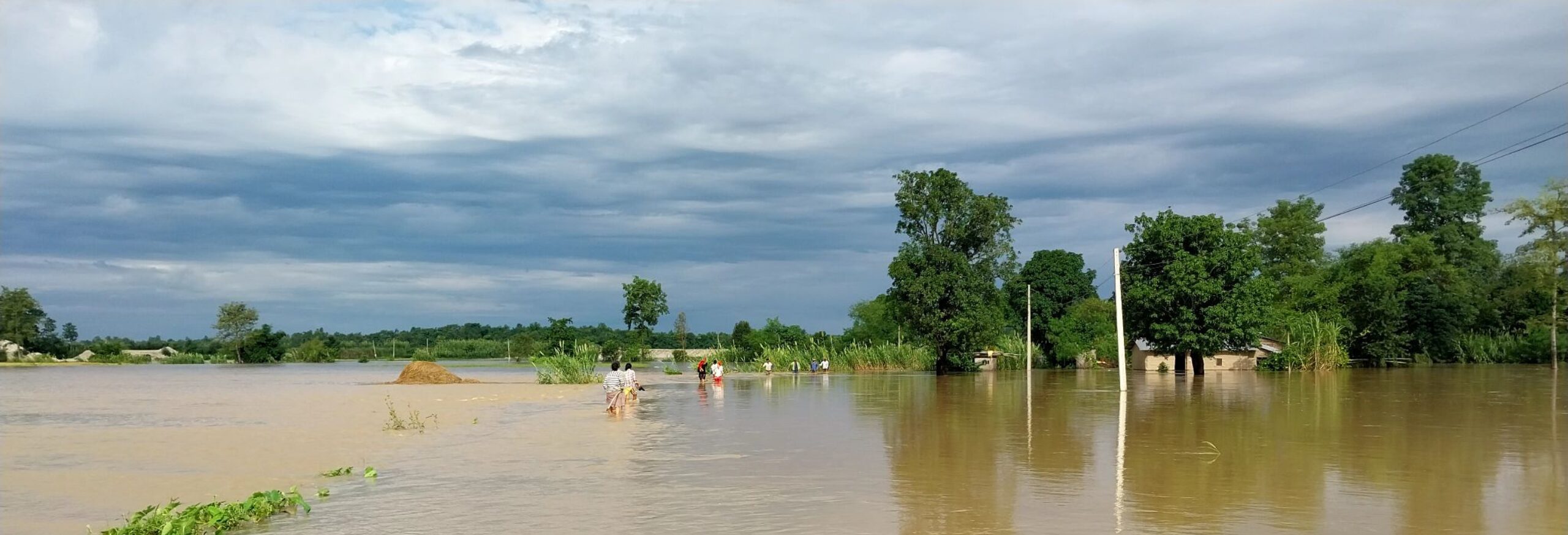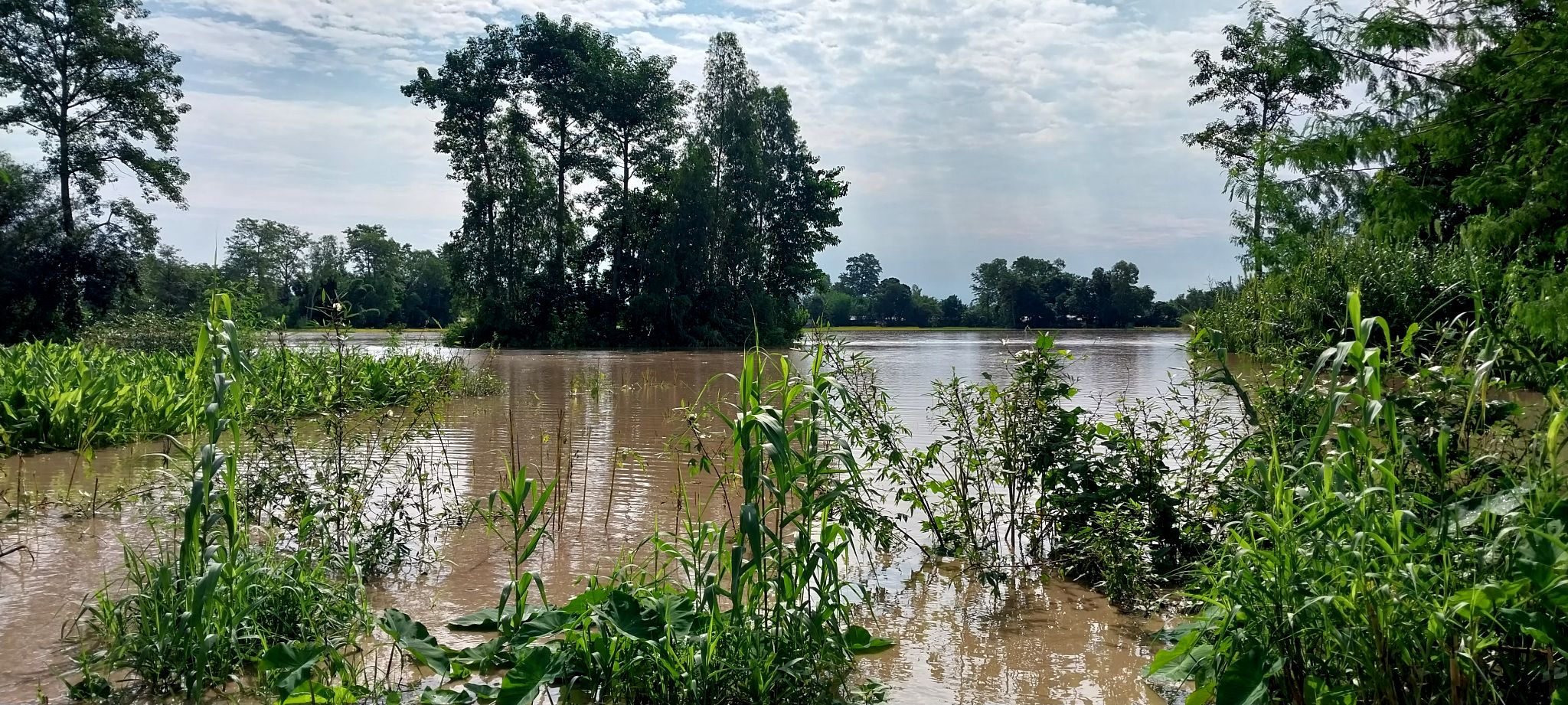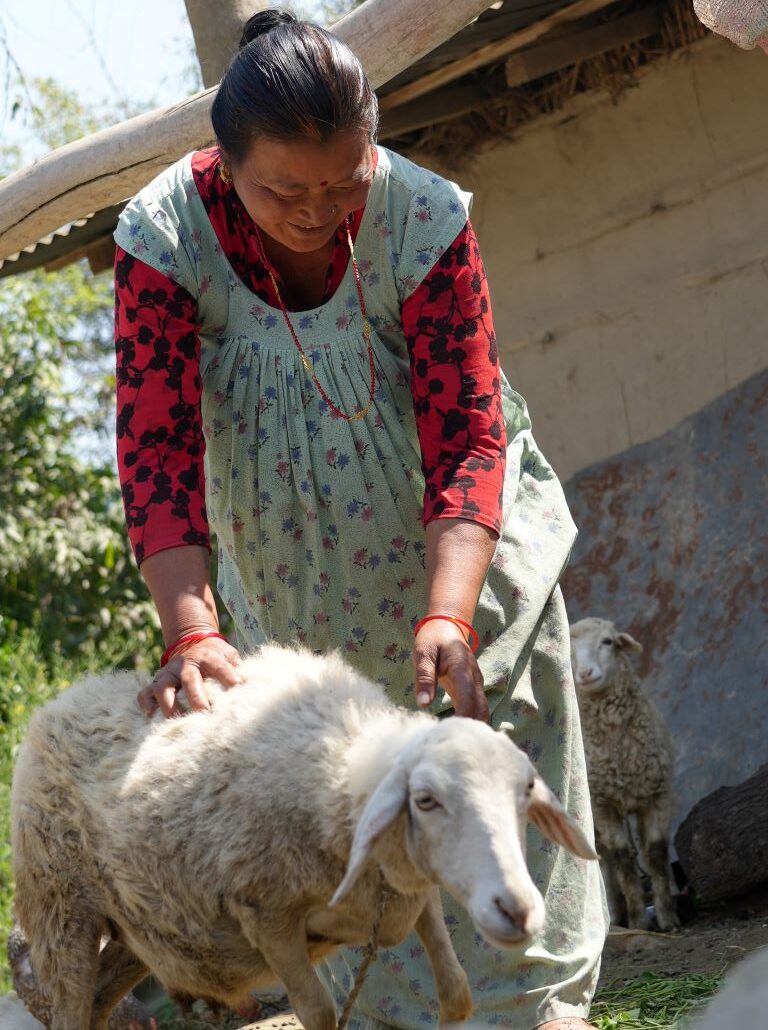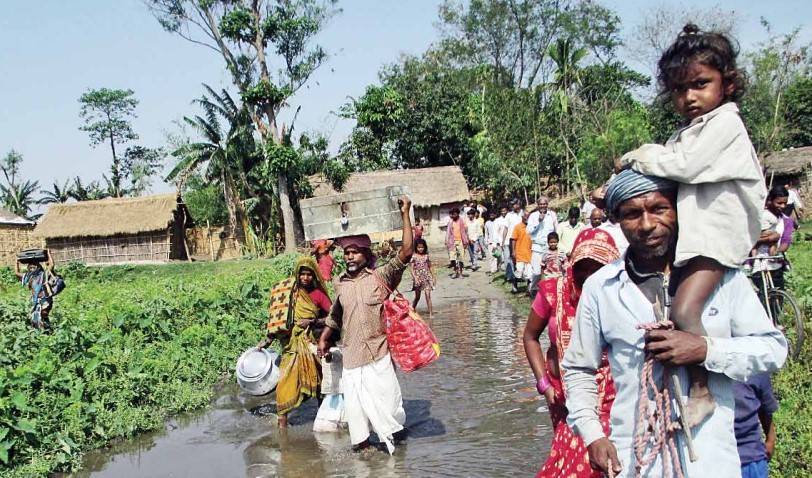
A new impact study has found that a pilot climate insurance scheme in Nepal is helping farmers recover more quickly and confidently from devastating floods.
The new initiative implemented by Practical Action, and its partners has provided thousands of smallholder farmers the tools and financial support they need to protect themselves against unpredictable weather. As climate change drives increasingly intense rainfall and drought across South Asia, rural communities are being hit hard. Traditional disaster response often arrives too late, if at all. But a new form of insurance is offering an alternative. Unlike traditional insurance, which requires claims assessments and paperwork, a new product called parametric insurance pays out automatically based on independently verified rainfall and flooding data. This ensures that farmers receive payments quickly, without the burden of assessing individual losses.

The Index Based Flood Insurance scheme, implemented by Practical Action and assessed by independent research firm 60 Decibels with support from the Swiss Re Foundation, has shown strong results:
- 77% of insured farmers increased their savings.
- 75% reported greater confidence in facing future disasters.
- 70% said the payout they received was sufficient to cover their most urgent recovery needs.
- Nearly all farmers said the insurance reduced their stress and helped them feel more secure.
Bikram Rana, Project Manager for Practical Action’s index-based flood insurance project said
“This work is more than just financial protection, it is helping farmers plan better, stay in control, and recover quickly rather than being pushed further into poverty by climate shocks.
“One farmer told us that the compensation she received after flooding helped her buy groceries and new crops, fuelling the next harvest and easing the impact of the loss. Another shared how the scheme helps with preparedness too receiving regular updates via SMS on river levels and learning about climate risks through cooperative meetings.
“And a third farmer explained how the payout allowed him to buy fertilizers, pesticides, and seeds to get back on his feet for the next season.
“It is not just about payouts, it is about building trust, dignity, and long-term resilience.”
For many farmers, the support has enabled them to continue farming, stay out of debt, and maintain household stability during a crisis.
The project was introduced in March 2021 to strengthen the resilience of developing countries and protect the lives and livelihoods of poor and vulnerable people against the impact of floods.
Govinda Rawal, general manager of a farmers’ cooperative said
“Initially it was difficult to convince farmers here. There were a lot of negative comments. There was a feeling amongst farmers that it was a fraudulent project
“The insurance is so important because it is a recurring disaster that happens nearly every year.
“The insurance covers the cost and allows them to purchase several types of agricultural equipment and inputs. It was a relief to see people receive the money.”

The first phase of the pilot paid out over $28,000 in insurance claims to nearly 1,000 smallholder farmers in 2022. These beneficiary farmers, from flood-prone areas of Nepal, received payouts representing 25% of their insured amounts at the time. In 2024 a payout of over $2100 representing 10% of the sum insured to around 1300 farmers were made.
Bhagawati Shawa, the leader of an all women’s farmer co-operative said
“Climate change has been impacting farmers very much because in agriculture timing is important. When there are rains after they have just got the harvest to their houses the floods sweep away everything.
“It is a heart wrenching experience when I hear about my members and the floods. People don’t know what they will eat.
“I am the chairperson, and I can’t be hopeless. I try and keep a happy and straight face so I can motivate people to carry on.
“The farmers were happy when they received the payouts, and I was equally happy. There were a lot of people giving negative comments, so it was nice to be proved right. Now lots of people are joining this co-operative because they can join this scheme.”
Selina Tharuni, a farmer with the new insurance said
“When the floods came, I had no idea of how to save the harvest I had. The priority for us is to save our lives and our children’s lives.
“The community has been here for a very long time, but previously the water wouldn’t come into the village, but lately the water comes in and almost every year there are damages.
“I had no idea about what the index insurance scheme was, but then the co-operative came together and told us how it worked.
“We learned that when we get a payout, we get an SMS message. We get the money in the right time to be able to buy the things we need after the flood because at that time it is very difficult.
“Before the insurance I lost all the paddy I cultivated. After the insurance, although the payout isn’t a very huge sum it was sufficient to overcome our initial problems. I feel more secure.”

In addition to financial protection, the programme is helping to build awareness and preparedness for future disasters.
The insurance product was designed to be simple, transparent, and locally relevant. Practical Action worked closely with cooperatives and community members to ensure they understood how it worked, what triggered payouts, and how they would receive funds.
As the frequency of climate shocks increases, Practical Action is exploring ways to scale this model to other vulnerable regions and integrate it with early warning systems and community preparedness strategies.
Read the full report: 60 Decibels – Practical Action Impact Study
The piloted Index-Based Flood Insurance (IBFI) project is co-funded by InsuResilience Solutions Fund (ISF) and Zurich Climate Resilience Alliance (ZCRA) through Z Zurich Foundation.